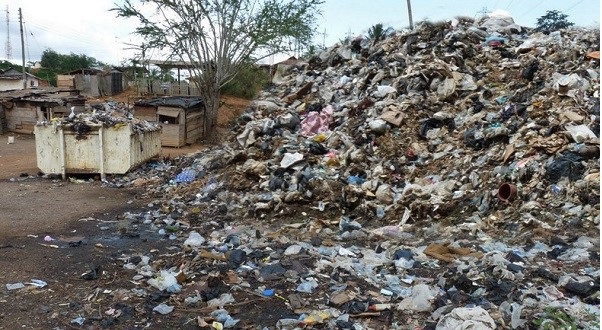The Ghanaian Perspective: Opinion Articles on Current Issues

Improper waste segregation: Threats to sanitation
A number of 240-litre refuse bins overflowing with solid waste stand at the entrance to many houses. The volumes of waste are enough to fill an extra bin.
An army of flies buzz and gloat over the compendium of solid waste – plastic, paper, leftover food, polythene. The stench emanating from the waste would get any passer-by to hold the nose.
That was the unsightly scene at some houses at Mataheko in the Greater Accra Region.
Although European Union (EU) standards provide that waste must be segregated into eight categories, the occupants of these houses lump all the waste into a single refuse bin.
Maame Esi, an occupant of one of the houses, said her refuse bin was overflowing with waste because the trucks that came to pick it up fail to come regularly.
When asked why she had decided to dump all the refuse into the same bin, she said that was what everyone did, and there was nothing special about her case.
“There are no different trucks to carry different kinds of waste, so even if I separate it, we will have to put all of it in the same truck for disposal,” she said.
Just like Maame Esi, residents of many parts of Accra do not segregate their waste for various reasons. For instance, a resident of Kasoa Obom, Aku Manu, said she did not have money to buy bins for waste segregation.
“I mix the empty bottles, pure water rubbers and all forms of waste together. Every waste is waste,” she said.
The middle-aged woman said the idea of segregating waste meant nothing, but a waste of money. She did not see the need to buy more waste bins when one could serve the same purpose.
Plastic waste
Even worse, many residents of some slum communities, especially Old Fadama and Chorkor, do not have refuse bins. What they do is to dump the refuse indiscriminately, with the plastic waste ending up in gutters, thereby getting drains choked. Many of them also end up in the belly of the sea.
A walk through the city of Accra, especially on a rainy day, would bring to the fore the reality of how these plastics leave the city inundated with floodwater that wreaks havoc to lives and properties.
It also raises the question of the management of plastics in the country.
It is estimated that 12,710 tonnes of household waste are generated in the country daily, with an average of 47 kilogramme per person.
Out of the total waste generation, only 10 per cent of solid waste is disposed of properly, while the majority of the remaining waste (about 50 per cent) are never collected for disposal and end up on the street, in drains and in streams.
While rapid urbanisation largely accounts for the solid waste debacle, poor financial capacity of local authorities, low technical capacity for planning and management of solid waste and weak enforcement of environmental regulations also stand accused.
Plastic, resource
A research scientist at the Council for Scientific and Industrial Research (CSIR)-Institute of Industrial Research, Dr Boniface Yeboah Antwi, said the plastic menace in the country could be turned into a blessing by providing infrastructure for recycling.
That too would also help in job creation. He said plastic was an important resource that served useful purposes across the world.
“Plastics have helped to reduce deforestation because it is used for making millions of chairs, tables and other products. If the trees in the forest were cut to get wood for furniture, the forest would have been destroyed,” he said.
The scientist stressed that there was the need for the country to be more creative and innovative with the use of plastics instead of seeing it as a menace.
Dr Antwi proposed a four-pronged approach to effectively manage waste in the country. These four approaches are waste generator engagement, sensitisation of waste generators, provision of infrastructure for waste management, and networking of end users to the infrastructure.
Dr Antwi added that it was important for the mandated state agencies to work closely with the private sector to put in place a good mechanism to recover plastics.
Interventions
At a recent Meet the Press series, the Minister of Environment, Science, Technology and Innovation (MESTI), Dr Kwaku Afriyie, said the ministry was collaborating with other stakeholders to tackle the plastic waste challenge holistically.
“We are having continued engagement with the private sector to put in place infrastructure in the waste management value chain.”
“They are crucial in terms of providing infrastructure for collection, transportation, sorting, recycling of plastic waste,” he said.
The minister said the interventions were focused more on segregation of waste and changing the narrative to seeing waste as a resource.
Dr Afriyie added that at the policy level, the ministry was focused on implementing the polluter pay principle to control the plastic menace.
“Data shows that 74 per cent of companies operating in Ghana make use of plastic packaging; so if we put plastic product on the market, then there should be a system to get it collected.
This is dovetailing to the broader producer responsibility principle,” he said.
The writer is a National Service Person with the Daily Graphic Newspaper
E-mail:
